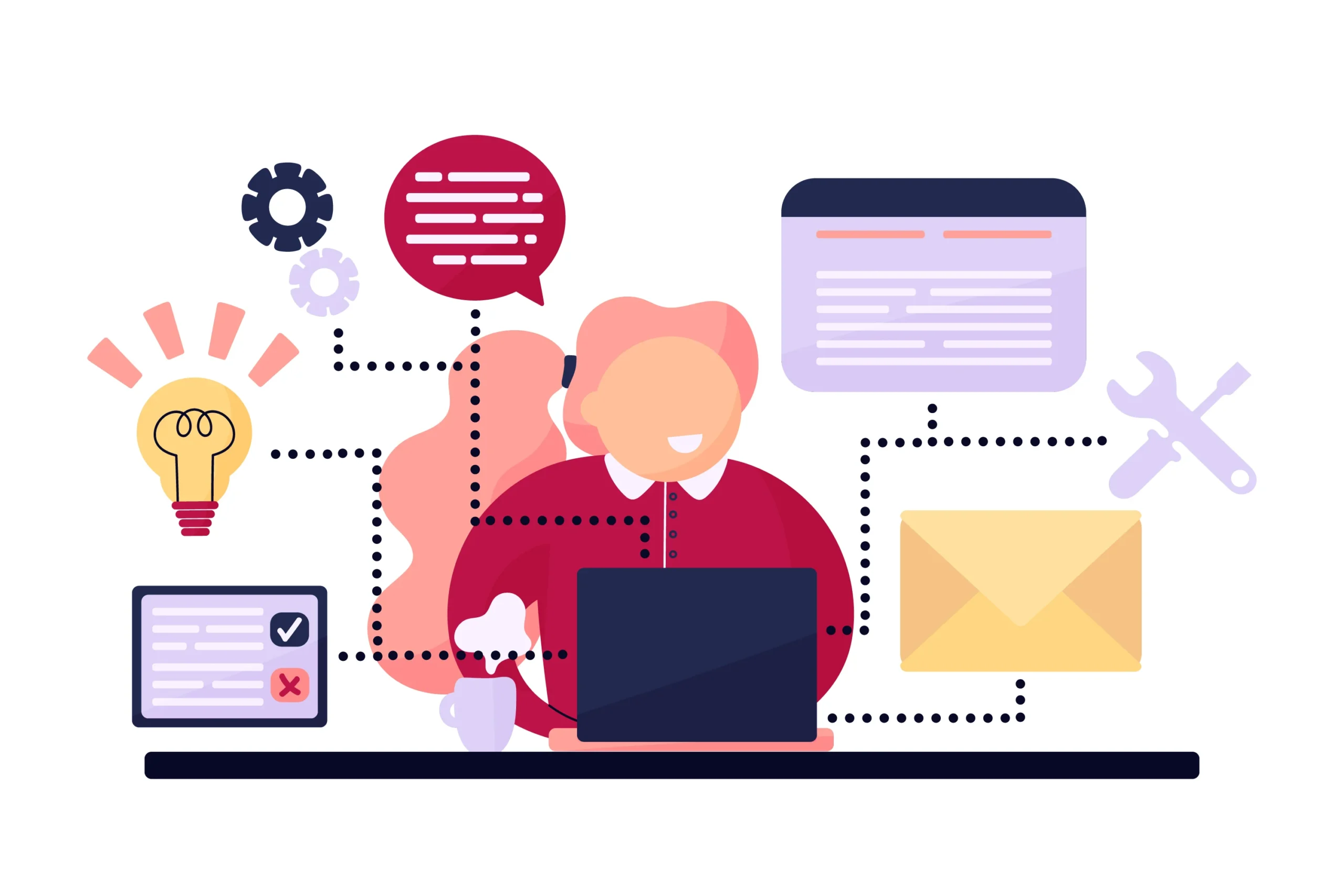Introduction
Listening is a crucial skill in both personal and professional life. It allows us to understand, empathize, and respond thoughtfully to others, forming stronger connections and fostering effective communication. However, many of us struggle with truly listening, often distracted by our thoughts, devices, or preconceived notions. Becoming a better listener is not just about hearing words—it’s about actively engaging with the speaker, understanding their message, and responding appropriately. In this article, we will explore how you can improve your listening skills, why it matters, and practical strategies to help you become a more attentive and empathetic listener.
Why Is Listening Important?
Good listening skills are foundational to effective communication. They enable us to build trust, resolve conflicts, and collaborate more effectively. By understanding the importance of listening, we can appreciate its impact on various aspects of our lives.
Enhances Relationships
- Listening fosters deeper connections by showing empathy and respect for the speaker. When you actively listen, you validate the speaker’s feelings and thoughts, which can strengthen your personal and professional relationships.
Improves Problem Solving
- Effective listening allows you to fully understand a problem or situation. This comprehensive understanding enables you to offer more accurate solutions and make informed decisions.
Boosts Emotional Intelligence
- Good listeners are more attuned to the emotions of others. By recognizing and understanding these emotions, you can respond more empathetically, which enhances emotional intelligence.
Increases Productivity and Collaboration
- In the workplace, listening is key to effective teamwork. When team members listen to each other, it fosters a collaborative environment, minimizes misunderstandings, and boosts productivity.
Common Barriers to Effective Listening
Several factors can impede our ability to listen effectively. Identifying these barriers is the first step toward overcoming them.
Distractions
- Modern life is full of distractions, from smartphones to background noise. These distractions can prevent us from fully concentrating on the speaker.
Preconceived Notions
- Prejudices and assumptions about the speaker or topic can create a mental block, causing us to filter out or misinterpret information.
Emotional Reactions
- Strong emotional reactions to a speaker’s words can cause us to stop listening and start formulating counterarguments instead.
Lack of Interest
- If the topic does not interest us, we may zone out or become passive listeners, missing key information.
How to Become a Better Listener: Strategies and Tips
Improving your listening skills requires conscious effort and practice. Here are several strategies to help you become a more effective listener:
1. Practice Active Listening
Active listening involves fully focusing on the speaker, understanding their message, and responding thoughtfully. It is an intentional process that requires practice.
How to Practice Active Listening
- Maintain Eye Contact: Make eye contact to show that you are engaged and interested in what the speaker is saying.
- Nod and Use Verbal Cues: Nodding, saying “I see,” or “I understand” helps convey that you are following the conversation.
- Avoid Interrupting: Let the speaker finish their thoughts without interrupting or interjecting with your own opinions.
2. Eliminate Distractions
To become a better listener, create an environment conducive to attentive listening.
Tips for Reducing Distractions
- Put Away Devices: Keep your phone and other distractions out of reach to prevent temptation.
- Find a Quiet Space: If possible, choose a quiet environment where you can focus entirely on the speaker.
- Practice Mindfulness: Train your mind to stay in the present moment by practicing mindfulness techniques like deep breathing or meditation.
3. Develop Empathy
Empathy involves understanding and sharing the feelings of others. When you listen empathetically, you go beyond words to grasp the speaker’s emotions and perspectives.
Steps to Enhance Empathetic Listening
- Acknowledge Feelings: Recognize the speaker’s emotions and validate their experiences.
- Ask Open-Ended Questions: Encourage the speaker to elaborate on their thoughts by asking open-ended questions like “How did that make you feel?” or “What happened next?”
- Reflect Back What You Hear: Paraphrase what the speaker says to show that you understand their message. For example, “It sounds like you felt frustrated when…”
4. Practice Reflective Listening
Reflective listening involves repeating or paraphrasing what the speaker has said to confirm your understanding.
How to Use Reflective Listening
- Repeat Key Points: Repeat the key points or phrases to clarify understanding. For example, “So, you’re saying that…”
- Summarize the Conversation: At the end of the conversation, provide a brief summary to ensure that both parties are on the same page.
- Ask Clarifying Questions: If you’re unsure about something, ask questions to clarify rather than making assumptions.
5. Control Emotional Reactions
It’s natural to have emotional reactions during conversations, but managing these reactions is crucial for effective listening.
Techniques for Managing Emotions
- Pause Before Responding: Take a deep breath and pause before responding to avoid reactive comments.
- Stay Open-Minded: Approach every conversation with an open mind, and be willing to consider other viewpoints.
- Practice Self-Awareness: Be aware of your triggers and emotional responses, and learn to recognize when you’re no longer actively listening.
6. Be Patient
Patience is a vital component of good listening. Allow the speaker to articulate their thoughts at their own pace without rushing them.
Ways to Cultivate Patience
- Give Time and Space: Let the speaker know that you are willing to listen as long as it takes.
- Avoid Finishing Sentences: Resist the urge to finish the speaker’s sentences or rush them to make their point.
- Show Interest: Use body language and verbal cues to show that you are genuinely interested in what the speaker has to say.
The Role of Feedback in Listening
Providing feedback is an essential aspect of effective listening. It shows that you are engaged and care about the conversation.
How to Give Constructive Feedback
- Be Respectful and Honest: Provide feedback that is respectful, honest, and constructive.
- Focus on the Message, Not the Speaker: Avoid making feedback personal; instead, focus on the content of what was said.
- Ask for Feedback: Encourage the speaker to share their thoughts about your listening skills, and use their input to improve.
The Benefits of Becoming a Better Listener
Improving your listening skills offers numerous benefits, both personally and professionally.
Personal Benefits
- Stronger Relationships: Better listening fosters trust and respect in relationships, leading to deeper connections.
- Increased Empathy: Understanding others’ perspectives enhances your empathy and emotional intelligence.
Professional Benefits
- Improved Communication: Good listeners are often effective communicators, which can enhance teamwork and productivity in the workplace.
- Better Decision-Making: Listening carefully allows you to gather all necessary information, leading to more informed decisions.
Conclusion
Becoming a better listener requires effort, practice, and a willingness to change ingrained habits. By practicing active listening, managing distractions, developing empathy, and controlling emotional reactions, you can enhance your listening skills significantly. Remember that listening is more than just hearing words; it is about understanding and connecting with others. In a world filled with noise, being a good listener can set you apart, improve your relationships, and lead to greater personal and professional success.
Improving your listening skills is an ongoing process, but the rewards are well worth the effort. By implementing these strategies, you can become a more attentive, empathetic, and effective listener, benefiting both yourself and those around you.


